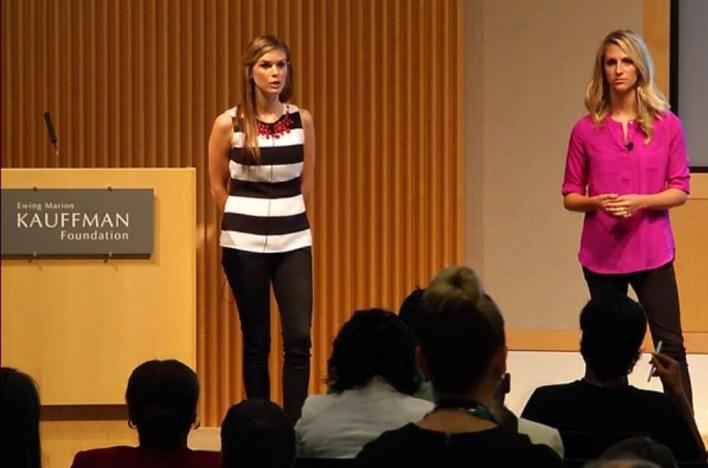This week’s 1 Million Cups at the Kauffman Foundation featured pitches by Colors Macarons, a French macaron bakery in the River Market, and Panacea, a startup aiming to disrupt the counterfeit medicine industry in Bangladesh.
When Colors Macarons co-founders Colleen Kirk and Australian native Sarah Rami met in Kansas City in 2013, Rami was already baking macarons, a meringue-based confection with filling between two biscuits. Kirk had no previous professional baking experience, but was looking for an entrepreneurial opportunity and recalled her sweet encounter with fresh macarons during a 2006 visit to Paris.
The two “jumped in head first,” Kirk said, and opened their wholesale and retail macaron bakery in October 2013, selling mostly to restaurants and cafes. Producing around 1,500 handmade, gluten-free macarons a week, Colors Macarons’ expanding list of clients includes the Roasterie, Jasper’s Restaurant and Hen House and Cosentino’s grocery stores.
The bakery also makes macarons for wedding receptions and other special events. Macarons can be produced with logos and in custom colors, including matching the color of macarons to the color of bridesmaid dresses.
Commercially available macarons are “a newer idea in Kansas City … so we feel like we get to introduce this product, which is fun,” Kirk said. But for the business to realize its “enormous potential,” she said, Colors Macarons needs equity investors to pay for new machinery to increase production.
Panacea at 1 Million Cups
Next up were Panacea co-founders Soumik Aswad and Souvik Aswad from Bangladesh. Their company’s goal is to ensure that “nobody ever buys fake medicine again” in their country, where 5 to 10 percent of all medicines sold are phony and can have lethal results, Aswad said.
Panacea’s proposed solution to the $130 million counterfeit medication problem in Bangladesh: Print unique codes on medicine container strips. The codes will be stored in a database so that customers can check on a medicine’s authenticity merely by sending a text.
“Our service can save lives,” Aswad said. “But to get to the consumers, we have to get (the participation) of the pharmaceutical companies first.”

